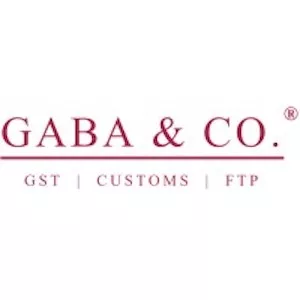Background
God may hear you or not, but your smart phone hears you loud and clear. Have you ever noticed that you speak of buying a wooden chair and your Browser, Instagram, Facebook etc. started displaying options of wooden chair? If yes, have you ever wondered, how? Well, you already know how.
Your mobile phone receives your inputs on two fronts (a) what you type and (b) what you say. When a user downloads a mobile Application, she may (intentionally or unintentionally) gives various permissions to such Application including voice recognition or recording. These permissions may or may not include permission to store or share your data.
Access to social interacting platforms like Instagram, Facebook, or LinkedIn is monetarily free for everyone. However, these platforms may collect and/or store and/or share your data including images, voice, documents etc. In turn, these platforms may monetize your data in form of charging an advertisement fee from their customers for displaying goods or services on your platform feed/page.
Question, therefore, arises as to whether a "free" online service is actually free or the data it collects from a user forms a "consideration" for such service. If the answer is the latter, the very first component to levy GST i.e., presence of a taxable event i.e., supply, gets satisfied.
In fact, Italy is already pursuing Meta (Facebook) for a $925 million in sales tax for access to online platforms. [Source: Reuters]
It is judicially settled in India that for levying a tax, there are four following components which must be present in a law:
- Taxable event – In GST, it is the "supply of goods or services or both"
- Taxable person – The Person who is liable to discharge the tax liability
- Rate of tax* – Ad valorem or a specific rate of tax
- Taxable value* – The value at which tax will be computed
It is imperative to, therefore, analyse the exigibility of GST on the "free online services" from all four fronts.
Taxable Event
Section 9 of the Central Goods and Services Tax Act, 2017 ('CGST Act') provides that to levy GST, there must be a 'supply'. Section 7 of the CGST Act defines supply to include services provided for a 'consideration' in the course or furtherance of business.
Thus, presence of consideration is a pre-condition to levy GST (except in cases specified in Schedule I to CGST Act). The term 'consideration' is defined under Section 2(31) to mean a payment made for the service or the monetary value of an act for a service.
The question, therefore, is whether sharing of data by users amounts to a payment to platform provider or the act of sharing data has a monetary value. Of course, if platform providers are earning money out of users' data, one can easily understand that it has some monetary value even if sharing of data does not amount to payment.
Taxable Person
In case the platform provider is in India, the platform provider would be treated as a taxable person. For platform providers who are not physically present in India and supplying services on a B2C model, they will have to obtain a GST Registration and pay GST accordingly, in terms of Section 14 read with Section 2(17) of the Integrated Goods and Services Tax Act, 2017 ('IGST Act').
Rate of Tax
Indian GST laws provides a general rate of 18 percent on the value of services with lower rates on specified services. Here, the online access and information services would be chargeable at the general rate of 18 percent.
Taxable Value
Under Indian GST laws, where payment of consideration is in money only, the taxable value is the amount actually paid to the Supplier. However, in the present case, the consideration is paid by a user in form of her data. Thus, the valuation rules framed by the Government comes into picture and the money value of such data would become the taxable value.
Now, it is exceedingly difficult to determine the money value of one's data. One of the measures to ascertain the money value of one's data is to link it with the revenue the platform provider is earning by sharing one's data. Then again, there will be multiple variables.
Thus, under Indian GST laws, although there is an overall valuation mechanism provided in law for services having non-monetary consideration yet for data as a consideration, ascertaining the money value is impossible. As a corollary, GST cannot be levied in the absence of standards for measure of levy in this particular case.
Another argument against the levy could be that for sharing users' data, platform providers are earning income which is already charged to GST and thus, there cannot be double tax. This argument, however, may not help because each supply under GST is a separate taxable event.
Author's Conclusion
Though Italy has started investigating this issue, we have not heard anything from Indian Government on this matter. This is probably going to be one of the biggest litigious issue in Indian tax litigation history in the coming years. The concerned organisations should make proper planning on how this transaction be protected from GST. I am sure Government will also look to amend certain aspects of GST law to crystalise the levy which can sail through in Indian Courts.
Finally, taxing access to data would also be a small step towards ensuring citizens' right to privacy under Indian Constitution.
Article was first published on Taxsutra.
The content of this article is intended to provide a general guide to the subject matter. Specialist advice should be sought about your specific circumstances.

